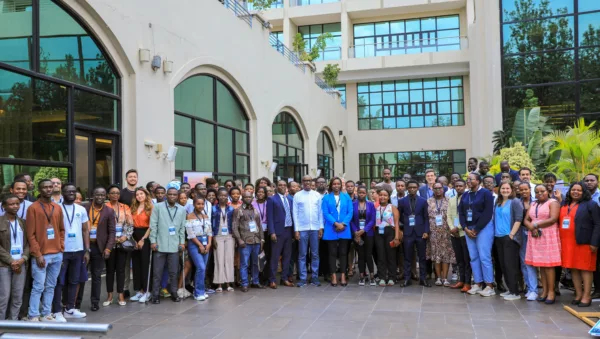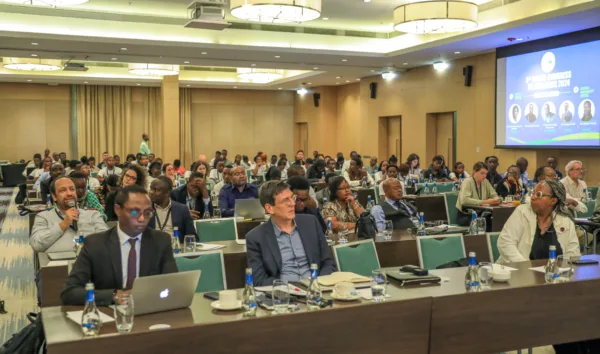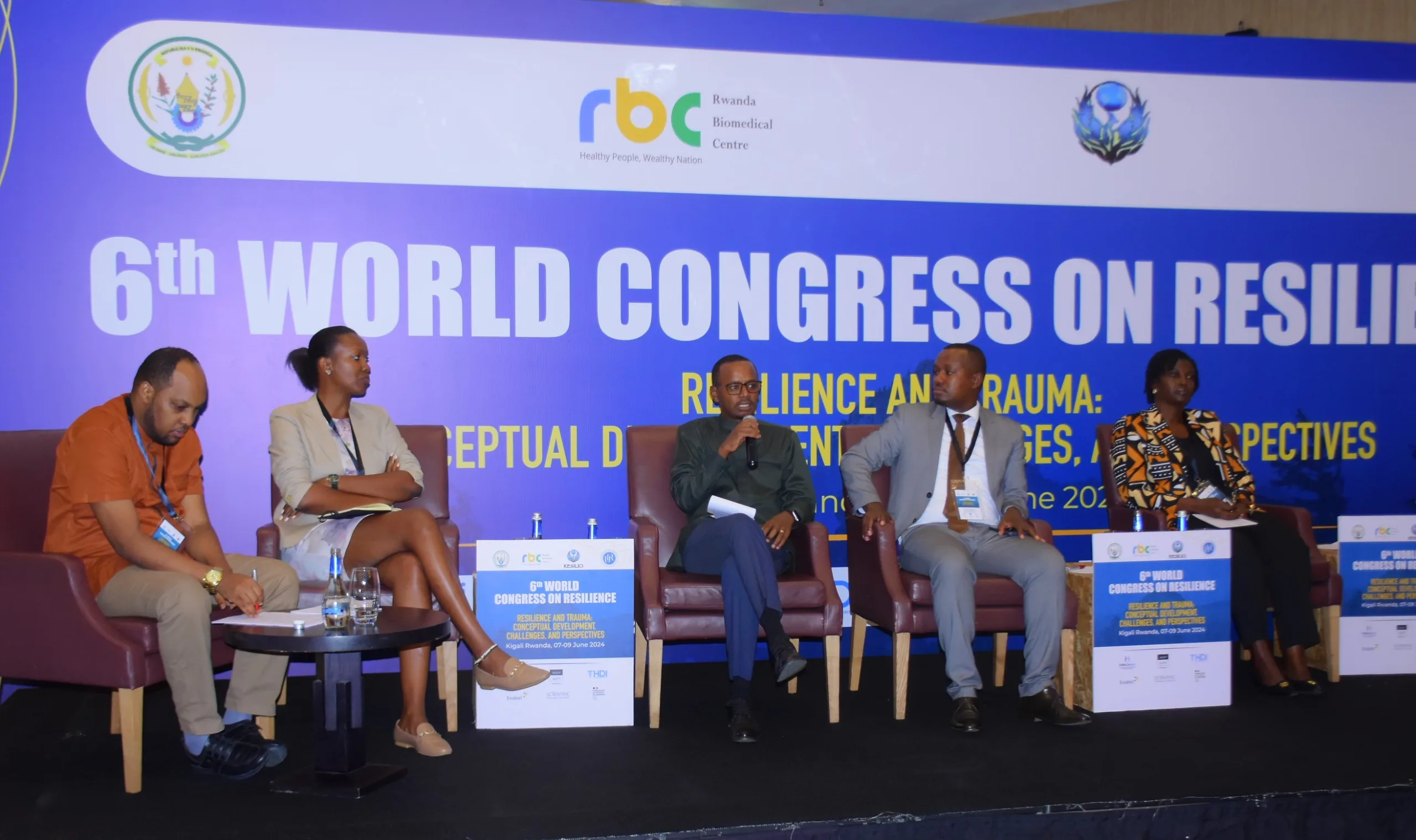The role of research in building and strengthening resilience
Building and strengthening resilience in any country or society requires research-based interventions that drive real change. This resonates best in Rwanda, a country that experienced the most horrible crimes of the Genocide against the Tutsi three decades ago.
In June 2024, Interpeace partnered with Resilio - International Association for the Promotion and Dissemination of Resilience Research, the University of Rwanda, the Rwanda Biomedical Centre, the Ministry of National Unity and Civic Engagement, and local peacebuilding organizations to organise the 6th World Congress on Resilience, held in Kigali, Rwanda.
Themed “Resilience and Trauma: Conceptual Development, Challenges, and Perspectives,” this international gathering brought together more than 350 participants, including researchers, practitioners, academics, university students, peacebuilders, as well as policymakers from across the globe who are involved in the field of trauma healing and resilience.
Featuring scientific papers and oral presentations, poster sessions with presentations from researchers, video screenings, as well as panel discussions, the congress provided participants with the opportunity to deepen their discussions on the role of research in fostering trauma healing, strengthening resilience, and peacebuilding.
In joint opening remarks, the Chair of Resilio, Prof. Eugene Rutembesa, and Co-chair, Prof. Colette Jourdan-Ionescu, stressed the importance of organizing the congress in Rwanda, which is located in Africa’s Great Lakes region that has been experiencing violent armed conflicts and insecurity for decades.

“This congress will allow researchers from around the world, especially those from the Great Lakes region, which has been experiencing protracted political and ethnic violence, to better understand and discuss the ability to resist destruction, to preserve integrity, and to build the resilience of those people undergoing extreme suffering.”
Speaking as a Guest of Honor, Jean Damascene Bizimana, Rwanda’s Minister of National Unity and Civic Engagement (MINUBUMWE), underscored the level of resilience Rwanda has achieved 30 years after the Genocide against the Tutsi and commended the role of research in that journey. He also recognised that the discussions and deliberations of the congress would enable concerned actors to continue developing evidence-based programming.
“This event testifies to the importance of research and multi-stakeholder collaboration to help us further our understanding of resilience. It will also help all stakeholders across the globe to develop fact-based initiatives to continue strengthening the resilience of populations at all levels.”
The 6th World Congress on Resilience was an opportune occasion for Interpeace to showcase its work and holistic approach that have significantly contributed to strengthening the resilience of Rwandans.

Evidence-generation to strengthen resilience
At the world congress, Interpeace presented the findings of the resilience assessment framework titled: “A Community-Based Participatory Framework for the Assessment of Resilience in Rwanda,” conducted in collaboration with MINUBUMWE. Involving a significant sample of 7,481 individuals, the study evaluated resilience across four levels—individual, household, community, and institutional—using a comprehensive set of 38 indicators.
The findings underscored a commendable degree of resilience across all assessed levels, demonstrating a significant milestone three decades after the Genocide against the Tutsi. The study recommended the need for intensified efforts in societal healing initiatives to sustain the gain in healing and resilience. The Framework for the Assessment of Resilience stands as a landmark initiative and a foundational reference for future studies in the field of resilience within the country.
Interpeace also presented the findings of its Randomised Controlled Trials (RCT) conducted to assess the effectiveness of its two interventions, namely Resilience-Oriented Therapy and Multifamily Healing Spaces, both of which are being implemented in the community to strengthen resilience at the individual and family levels, respectively.
Findings revealed that Multifamily Healing Spaces are effective in addressing the intergenerational transmission of genocide legacies, resolving intra- and inter-family conflicts, promoting positive parenting, and improving family communication and cohesiveness.
Resilience-oriented therapy has been proven effective for emotional regulation, behavioral self-management, and identity development. The results indicated an increase in psychological resilience by 15%, a decrease in depression by 64%, and a decrease in anxiety by 53% among the Resilience-oriented therapy treatment cohort. Implemented at the Health Centre level, the approach helps to address cultural barriers associated with the one-on-one approach usually implemented across the country and makes mental health services more accessible to more people in need.
Minister Bizimana commended the group-based approaches in building the capacity of individuals for resilience. “The Resilience-oriented therapy has proven to be particularly effective. Findings are not only commendable but also serve as a model for other communities around the world’” stated Hon. Bizimana.
In Rwanda, Interpeace and its local partners implement a holistic approach to peacebuilding and resilience strengthening. Watch the video below to further understand the unique and innovative approach that has driven positive change in societal healing in Rwanda.

